For most of 2016, much like the cycle of depressing news regarding celebrity deaths and politics, cinematic prospects were pretty grim. The quality of films was markedly lower than the last two years, not only for Hollywood, but for foreign and independent cinema as well. Additionally, for much of the year (January-October) the few stand out films were usually about topics such as depression, isolation, or grief. If there were one recurring theme at the movies this year, I would say it was grief.
From the critically acclaimed Manchester by the Sea, to Natalie Portman’s showcase vehicle Jackie, to Martin Scorsese’s highly anticipated Silence, to the young adult fantasy A Monster Calls, to the riveting sci-fi film Arrival, to the powerful documentary Tower, to Terrence Davies’ poetic Sunset Song, to Terrence Malick’s meditative Knight of Cups, to the disturbing indie thriller The Invitation, and to Will Smith’s acting packed Oscar bait project Collateral Beauty, grief, suffering, loss, and the ways which we deal with those things permeated cinema this year. Even the Oscar frontrunner and throwback to uplifting old school musicals, La La Land, is tinged with themes of loss and regret.
Naturally, there were a few bright, hope filled films such as Whit Stillman’s hilarious Jane Austen adaptation Love & Friendship and Steven Spielberg’s magical fantasy full of childlike wonder, The BFG.
I’m not equally fond of all the above films. Some of them you will see below; others will not be here. While much of the year I admittedly wondered whether my top ten would look respectable, in the last few months, several great filmmakers came through and delivered powerful, accomplished works of art that challenged and moved me tremendously, showing the power of art to transform and inspire, and I’m happy to share those. Feel free to share your favorite films of 2016 in the comments.
Good Films Worth Noting (35-22):
Loving; Sully; The Shallows; Hacksaw Ridge; Queen of Katwe; Kubo and the Two Strings; Little Men; Moonlight; Doctor Strange; Pete’s Dragon; The BFG; Hail, Caesar!; Elle; Kate Plays Christine
Honorable Mentions:
21. 13th (Ava DuVernay) – This documentary about the mass incarceration and systematic discrimination against African Americans which originated with a loophole in the 13th Amendment is timely and powerful enough that it warrants expanding the honorable mentions by one slot.
20. The Young Messiah (Cyrus Nowrasteh) – As the title says, this thoughtful and meditative film portrays a possible year in the life of the child Jesus as his human nature comes to fully understand his divine nature. (full review)
19. Eye in the Sky (Gavin Hood) – Is drone warfare ever permissible and what if anything constitutes an acceptable collateral loss of life? Those questions are at the front of this engrossing drama with Helen Mirren and Alan Rickman. (full review)
18. Sing Street (John Carney) – Carney’s third musical may be his weakest, but it is still another testament to the power of music to transform lives. This time it’s vulnerable teenage protagonists who start a band, through which we see their desire for the way the world should be while acknowledging the far from perfect way it is.
17. A Monster Calls (J. A. Bayona) – “Stories are wild things” the tagline reads, and 12-year-old Connor learns how true that is as stories from a monster teach him to face the truth that about himself which he’s been denying since his mother’s cancer. (full review)
16. Arrival (Denis Villeneuve) – A brilliantly edited, hope filled sci-fi film full of mystery and wonder regarding the appearance of aliens and their pod-like spaceships, the film is a testament to the importance of communication with everyone, especially those we don’t know or with whom we disagree.
Runners-up:
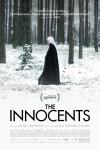 15. The Innocents (Anne Fontaine) – The first of two films on this list which explore God’s presence in the midst of suffering, The Innocents is about an horrific tragedy that forges an unlikely alliance between an atheist communist nurse and a convent of nuns in post-WWII Poland. The appalling nature of the tragedy results in some nuns losing their faith and others abusing their faith to rationalize equally horrific attempts to rectify the tragedy. However, the misfortunes and the alliance ultimately result in good, as the importance both of the vocation of the nuns and of the work of the nurse is affirmed. (full review)
15. The Innocents (Anne Fontaine) – The first of two films on this list which explore God’s presence in the midst of suffering, The Innocents is about an horrific tragedy that forges an unlikely alliance between an atheist communist nurse and a convent of nuns in post-WWII Poland. The appalling nature of the tragedy results in some nuns losing their faith and others abusing their faith to rationalize equally horrific attempts to rectify the tragedy. However, the misfortunes and the alliance ultimately result in good, as the importance both of the vocation of the nuns and of the work of the nurse is affirmed. (full review)
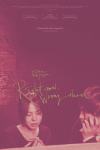 14. Right Now, Wrong Then (Sang-soo Hong) – When a famous director visits a Korean city to give a lecture on one of his films, he arrives one day early, and a chance meeting with a fan plays out two different ways. With reversed title cards providing a sort of commentary on those two different ways, the first half showcases a bitter reality marred by manipulation, and the second half contrasts it with a desire to understand and respect one another, even as each character’s fundamental nature remains unchagned. An ingenious use of long takes and still frames creates a meditative point of view, reminiscent of any film director. (full review)
14. Right Now, Wrong Then (Sang-soo Hong) – When a famous director visits a Korean city to give a lecture on one of his films, he arrives one day early, and a chance meeting with a fan plays out two different ways. With reversed title cards providing a sort of commentary on those two different ways, the first half showcases a bitter reality marred by manipulation, and the second half contrasts it with a desire to understand and respect one another, even as each character’s fundamental nature remains unchagned. An ingenious use of long takes and still frames creates a meditative point of view, reminiscent of any film director. (full review)
 13. The Fits (Anna Rose Holmer) – A coming of age/sports/horror/fantasy film about a young girl who regularly works out in the boxing gym with her older brother but wishes to abandon that in order to take up dancing, the deliberate ambiguity of the title overshadows the film as tracking shots follow the young protagonist through a difficult transition of her life in which she desires to fit in with the others while fearing the strange illness which seems to affect them. The film walks the line between straightforward rite-of-passage drama and surrealism until the brilliant finale, which merges both with visual flair while maintaining the ever present ambiguity.
13. The Fits (Anna Rose Holmer) – A coming of age/sports/horror/fantasy film about a young girl who regularly works out in the boxing gym with her older brother but wishes to abandon that in order to take up dancing, the deliberate ambiguity of the title overshadows the film as tracking shots follow the young protagonist through a difficult transition of her life in which she desires to fit in with the others while fearing the strange illness which seems to affect them. The film walks the line between straightforward rite-of-passage drama and surrealism until the brilliant finale, which merges both with visual flair while maintaining the ever present ambiguity.
 12. Jackie (Pablo Larraín) – As I said in my review, I fully acknowledge the many flaws in Jackie; however, this raw and messy portrayal of grief about Jackie Kennedy coping with the immediate aftermath of her husband’s assassination is strangely powerful. Director Pablo Larraín’s constant unconventional cinematic choices along with the non-linear structure and quiet moments of grace make Jackie a riveting, visceral, and deeply humanizing portrayal of the former first lady, helmed by what may be Natalie Portman’s best work of her career, with a strong supporting cast as well. (full review)
12. Jackie (Pablo Larraín) – As I said in my review, I fully acknowledge the many flaws in Jackie; however, this raw and messy portrayal of grief about Jackie Kennedy coping with the immediate aftermath of her husband’s assassination is strangely powerful. Director Pablo Larraín’s constant unconventional cinematic choices along with the non-linear structure and quiet moments of grace make Jackie a riveting, visceral, and deeply humanizing portrayal of the former first lady, helmed by what may be Natalie Portman’s best work of her career, with a strong supporting cast as well. (full review)
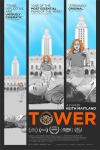 11. Tower (Keith Maitland) – A mostly animated documentary, with bits of historical footage and live interviews used sparingly and powerfully, Tower recreates the first school shooting in the USA via rotoscoping. It is devastating, difficult to watch, and ultimately full of hope. Focusing on the simple acts of heroism and the ways which a community came together to support one another, the film powerfully recreates the 96 minutes of terror, placing the viewer alongside police officers, students, victims, and survivors. Additionally, the near removal of the shooter from the story and the focus on beautiful acts of courage and compassion underscores the ability of art to heal a broken world.
11. Tower (Keith Maitland) – A mostly animated documentary, with bits of historical footage and live interviews used sparingly and powerfully, Tower recreates the first school shooting in the USA via rotoscoping. It is devastating, difficult to watch, and ultimately full of hope. Focusing on the simple acts of heroism and the ways which a community came together to support one another, the film powerfully recreates the 96 minutes of terror, placing the viewer alongside police officers, students, victims, and survivors. Additionally, the near removal of the shooter from the story and the focus on beautiful acts of courage and compassion underscores the ability of art to heal a broken world.
The Top Ten

10. Certain Women (Kelly Reichardt) – What do the lives of three separate women have in common? At a first glance, not much, as the three chapters of writer/director Kelly Reichardt’s film chronicle the everyday struggles of four seemingly unrelated women. As those women, Laura Dern, Michelle Williams, Kristen Stewart, and Lily Gladstone all give stellar performances as strikingly different characters, but the three short stories which comprise the film highlight the similarities among all of them. As we watch them resolutely deal with work related conflicts, try to live up to others’ expectations, and face subtly ingrained sexism, their common humanity shines through beautifully. Reichardt never fails to challenge the viewer’s expectations and assumptions, and her use of the cold Montana landscape is gorgeous as each segment takes us closer the vast expansive freedom offered by those mountains.
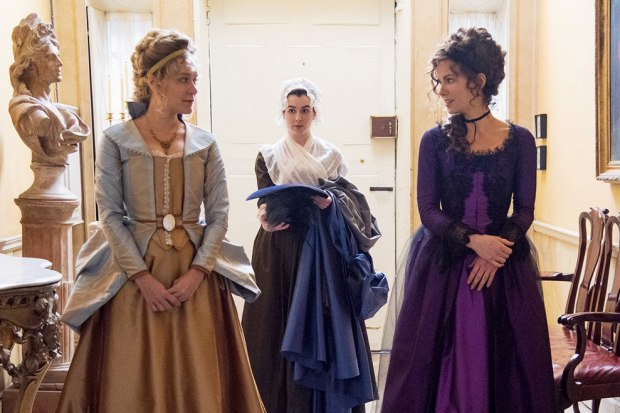
9. Love & Friendship (Whit Stillman) – Whit Stillman’s affinity for Jane Austen was made clear in his debut film Metropolitan. With Love & Friendship, he adapts her novella Lady Susan into a joyful and infectiously funny period piece. As Lady Susan Vernon, Kate Beckinsale effortlessly embodies the conceited, manipulative protagonist who has spent so much of her life rationalizing her schemes that she can utter statements like, “Facts are horrid things,” while viewing herself as an innocent victim who’s always in the right. When she moves in with her in-laws to find a husband for her daughter while allowing rumors of her adulterous improprieties to die down, she simultaneously resolves to woo and humiliate her sister-in-law’s brother as revenge against a perceived slight. Lady Susan naturally sees no irony in her actions, and her small echo chamber of devotees (primarily Chloë Sevigny) continually tell her she’s absolutely right, but the genuine love and friendship exhibited by the other characters is a stark contrast to Lady Susan, and Stillman writes and films their interactions at refreshing buoyant pace that is a delight from beginning to end.
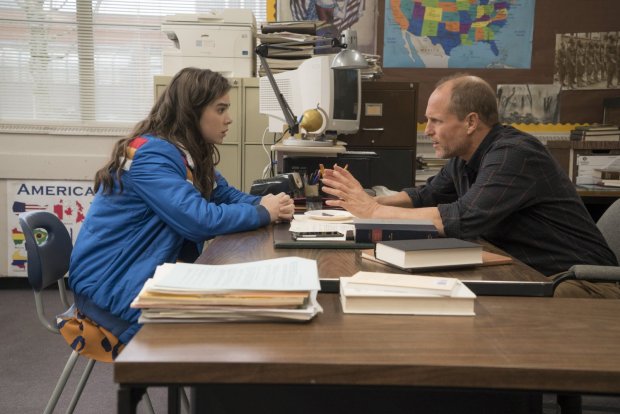
8. The Edge of Seventeen (Kelly Fremon Craig) – A morbidly offbeat comedy that may not be to everyone’s taste, The Edge of Seventeen exuberates compassion and sympathy for its flawed yet loveable characters. Seventeen year old Nadine (Hailee Steinfeld) is perhaps more of a drama queen than the average high school student, but she has suffered some excruciatingly painful losses, with which she never came to terms. Her feelings of depression and isolation reach a peak when her best (and only) friend begins dating her older brother. As she lashes out at most people in her life, the film refuses to whitewash her mistakes, but it also never abandons portraying her with empathy, especially as personified by her acerbic history teacher (Woody Harrelson). The witty sarcastic banter between the two of them is delightful, and it also conveys an unorthodox way of listening and caring for someone who needs help. (full review)
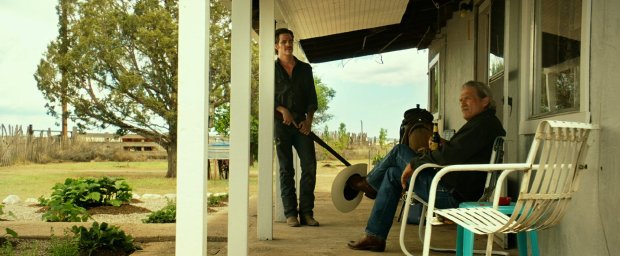
7. Hell or High Water (David Mackenzie) – Hell or High Water demands at least two viewings to fully appreciate all the meticulous craftsmanship that went into it. From the first scene, images are loaded with meaning, as the camera pans over a graffitied protest against the recent bank bailouts while veterans are losing their homes. As a story of injustices about changing times and losing one’s way of life due to corporate policies, not only are Chris Pine and Ben Foster’s bank robbing brothers trying to preserve what they have always known, but so is Jeff Bridges’ Texas Ranger, who throws himself into this last case of his, partially out of duty and partially as an attempt to put off his looming retirement. The crosscutting is absolutely perfect, whether to contrast the lawmen with the robbers, the brothers with each other, or to build tension for the final robbery and chase. The entire cast makes Taylor Sheridan’s droll dialogue crackle with life and wit, and Sheridan does a brilliant job of shifting our sympathies from character to character, making it so no one is purely a villain or a hero. The result is a nontraditional Western that brilliantly subverts the genre, while acknowledging the tragedy of the cycle of violence instigated by greed and rationalizations.
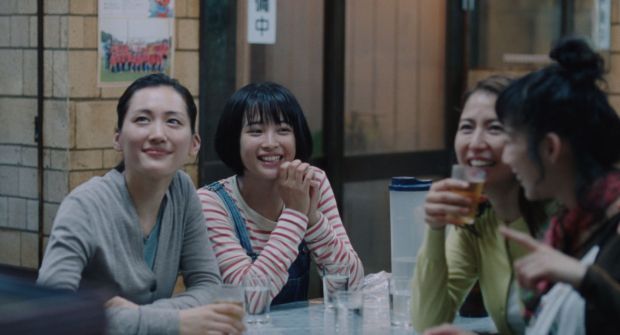
6. Our Little Sister (Hirokazu Koreeda) – A wonderfully gentle and life-like film, Our Little Sister chronicles the ordinary, daily life of three sisters who agree to adopt their younger half-sister when they learn of their father’s death. Even though their father abandoned them years ago to run off with another woman, the sisters cannot deny the bonds of family which extend to thirteen year old Suzu (Suzu Hirose) who has now lost both her parents. As the film shows all four sisters adjusting to a new life together, the compassion, love, and occasional awkwardness displayed make for a truly beautiful work of art that builds to a wonderful climax of forgiveness and grace. Like last year’s Brooklyn, this is the sort of conflict free film about wholesome endearing characters whose lives I would happily follow for five hours, as we glance through a window into a different culture, yet see actions and emotions which unite us all.
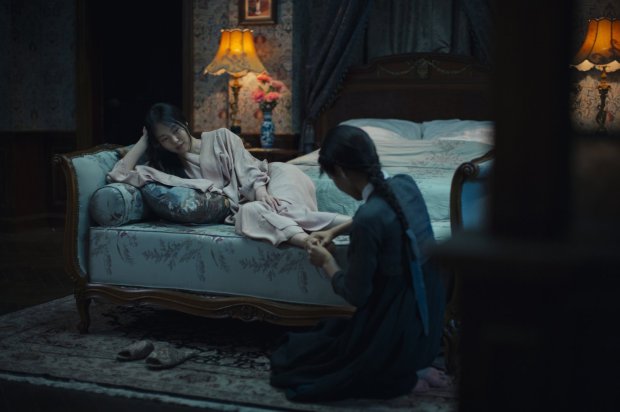
5. The Handmaiden (Park Chan-wook) – Every film critic has a short list of movies that he loves but would recommend to absolutely no one. The Handmaiden is such a film for me. Featuring stellar performances, perfect editing, gorgeous art direction, and entrancing cinematography, the story is so disturbing and graphic that despite my love for the film, I do not recommend it to any casual viewer. When a professional thief recruits a naive assistant (Tae-ri Kim) to help him marry and then institutionalize a rich heiress (Min-hee Kim) so he can steal her fortune, the stage is set for a Hitchcockian thriller with elaborate deceptions and double-crossings; but underneath the sinister scheming, the film’s focus is on the two women, both of whom have been victimized and objectified by more powerful men all their lives. Their relationship at the center of the film serves as powerful catalyst for the women to claim their own identities, which culminates not only in several brilliant plot twists, but also in the destruction of a library of pornography – both a symbolic and literal prison.
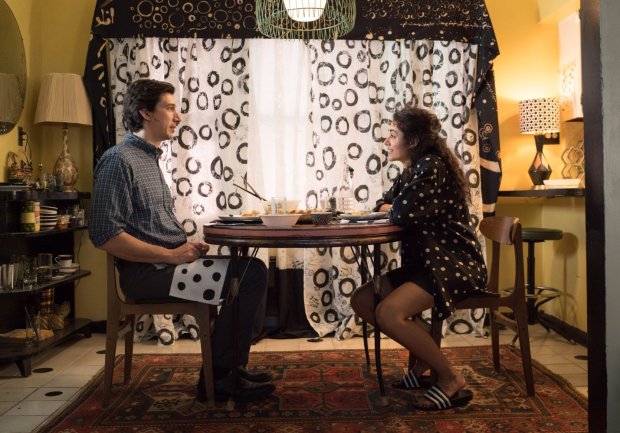
4. Paterson (Jim Jarmusch) – This is a film about joy, the joy of Adam Driver playing a bus driver named Paterson who lives and works in Paterson, NJ. The joy of writing love poems about matches, the joy of listening to your wife’s dreams, the joy of a cameo of two actors from one your favorite movies. Jarmusch’s thoroughly delightful film follows a week in the title character’s life, focusing on his daily encounters, beginning with his wife Laura, ending with the local bartender, and punctuated throughout the day by passengers, pedestrians, his English bulldog Marvin, and his melancholic coworker. In his spare time Paterson keeps a notebook that he fills with poems, some of them love poems, others observations about the daily happenings. Naturally some days are better than others, but regardless of what misfortune or blessings Paterson receives, the sun rises and sets every day, and Jarmusch captures both with an optimistic sense of humor and pathos not only for the titular bus driver, but for the oddball characters he encounters as well.
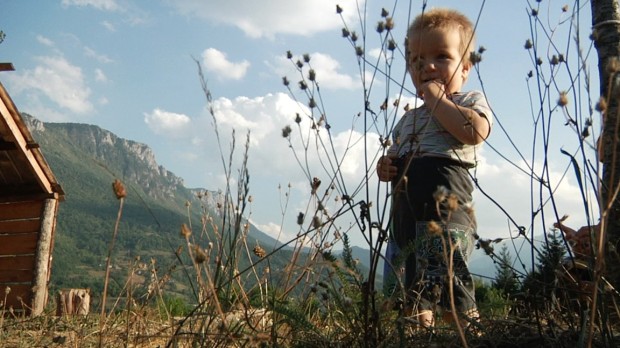
3. Cameraperson (Kirsten Johnson) – I confess, when I first heard of Cameraperson, I was skeptical that it would be as good as the raves I had heard. It was better. Compiled purely from unused footage that cameraperson Kirsten Johnson shot for documentaries over her career, the film reveals the secret life of cinematographers. As we watch the scenes that never made it into the finished movies, we see the relationships she forms with each of her subjects, always treating them as people regardless of what decision they are making. We see the spontaneous moments of joy, such as berry picking on the mountains of Bosnia or a Nigerian midwife starting a newborn baby’s heart. We also the see the first hand ability of cinematographers to raise awareness of grave injustices from the Bosnian genocide to the attacks on the World Trade Center to the practices at Guantanamo Bay. Regardless of what Johnson is filming, her attention to detail and capturing truth and beauty all comes through in her brilliant editing that makes the film infinitely watchable.
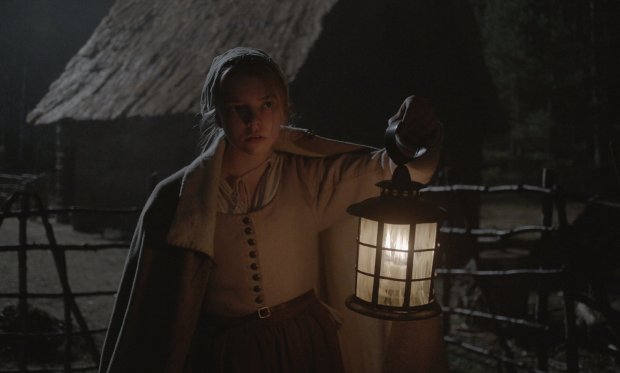
2. The Witch (Robert Eggers) – With The Witch, first time feature director and writer Robert Eggers has crafted a modern horror masterpiece that offers no easy answers as it explores the dangers and tragedy of rigid fundamentalism that despairs of the mercy of God. Set in Puritan New England, the film is deeply unsettling in the way it recreates the mentality of the sixteenth century and asks the viewer to accept that worldview along with the fears which motivated the witch trials. When a strictly fundamentalist family is exiled and forced to set up a farm on the edge of the woods, the family’s infant son soon afterward disappears, and the question of whether only a witch or something else in addition is terrorizing the family hangs over the film with brilliant dread and tension. The most horrific aspect of the film is not the presence of the demonic entity, but the destruction of the family though fear, despair, and the misuse of religion, the toll of which is most clearly shown on the eldest daughter, (Anya Taylor-Joy) whose inability to navigate her coming of age adds a powerful sense of tragedy to the horror. (full review)
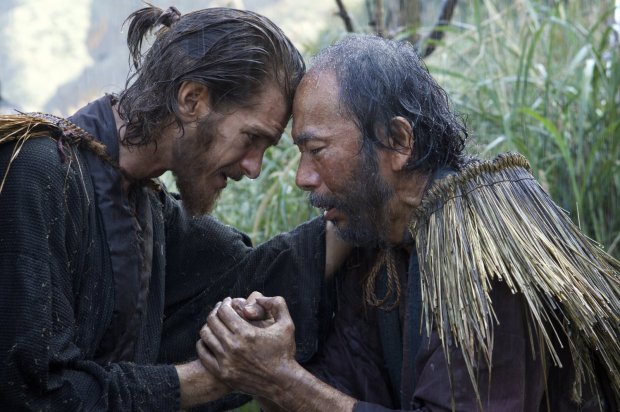
1. Silence (Martin Scorsese) – There are few things more endearing to a film critic than a highly anticipated film delivering all that one hoped it would. After reading Endo’s powerful and devastating novel last January, I eagerly waited to see if Scorsese could pull off his long planned adaptation. For the first half of the film, Scorsese’s reverence for the novel was clearly apparent, and his recreation of imperial Japan was beautiful and haunting. During the second half, the best of his filmmaking skills shine through, and the mounting tension in each confrontation between Fr. Rodrigues (Andrew Garfield) and his Japanese inquisitors makes for some of the most compelling cinema of the year. As a portrait of a dark night of the soul, the film treats its central question with solemn dignity, and the climax is every bit as challenging here as it was in the book, reminding us that whatever choice we make when we feel abandoned, God is right there alongside us. (full review)
#1 by Brian on January 21, 2017 - 12:01 pm
Yes-! Thank you for mentioning “Sing Street,” which I absolutely loved — though (since you mentioned your dislike of La La Land’s ending) — I did not like the ending of “Sing Street” at all. Also, very glad to see that you and SDG both included “The Witch” in your Best Of’s.
#2 by Evan on January 21, 2017 - 10:44 pm
Thanks! Sing Street really was delightful for the most part. Regarding the ending, I found it to be the perfect culmination to the “happy sad” theme.
The Witch was *this* close to being my #1, but then I decided Silence was just slightly the better film.